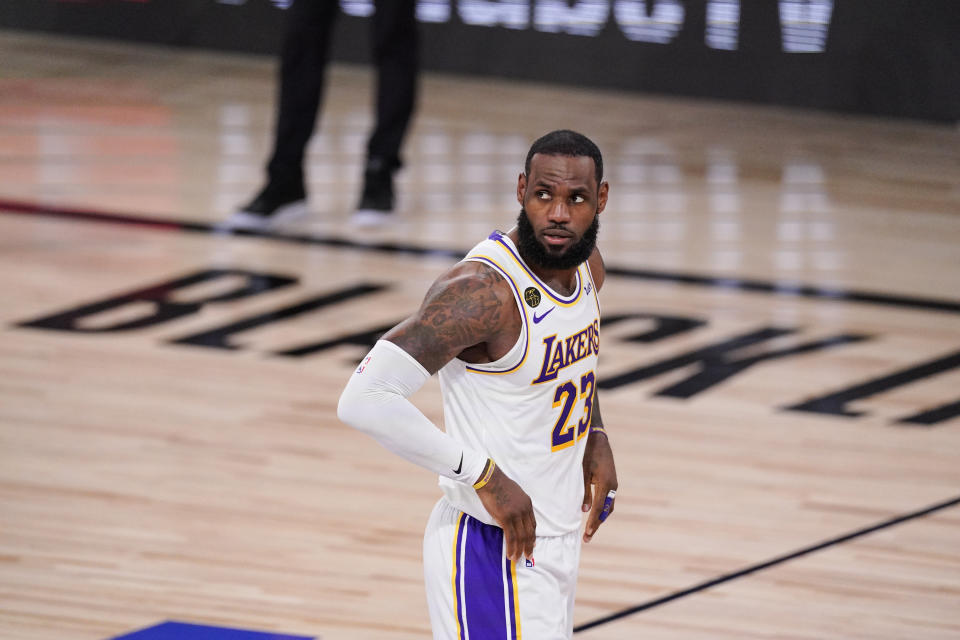Report: NBA, players nearing agreement on 72-game season beginning Dec. 22
It hasn’t even been a month since the Los Angeles Lakers’ win in the 2020 NBA Finals, but the next NBA season could be right around the corner.
The NBPA is planning to take a formal vote among team player representatives on Thursday on the league’s proposal of a 72-game season beginning on Dec. 22, according to ESPN’s Adrian Wojnarowski and Zach Lowe. The representatives are reportedly expected to approve the agreement.
If the proposal is approved by the players, NBA commissioner Adam Silver and the league’s board of governors expect to formally accept this week. That would lift the league’s moratorium and allow business-like trades to proceed. Urgency is direly needed given that training camps would begin on Dec. 1 under the arrangement, with free agency and the NBA draft on Nov. 18 still on the docket.
Basically, the league is going to try to compress its entire offseason into a span of less than four weeks. Of course, there is a 10-figure reason for the owners to push for that at the expense of their employees.
Waiting until 2021 could have cost the NBA $1 billion
Right now, the NBA’s long-term goal is going to be returning to its usual schedule.
That would ideally be a gradual process — starting the season later than usual and gradually moving up the calendar over a few seasons. However, the NBA is clearly terrified of a season extending into the summer again after brutal ratings in the playoffs and with the Summer Olympics looming next year. Those concerns reportedly translate to a range of $500 million to $1 billion in losses for the league if the season started in January rather than December.
Add that to the NBA’s reported $1.5 billion miss in revenue last season and the billions in revenue that will likely be lost this season by playing games with few, if any, spectators, and you have a league that’s going to try to move the season up as early as possible.
Players — especially LeBron James — aren’t going to like this

The NBA’s 50-50 split of basketball-related income gives the players a big reason to accept the Dec. 22 start, but there was still some reported resistance to the idea from the NBPA.
The biggest concern on the players’ side would be their side of the compressed offseason. Last year’s offseason essentially stretched from June 13, the last game of the 2019 NBA Finals, to Sept. 28, when most teams were allowed to open training camp. That is a span of 107 days.
The time between Oct. 11, the last game of the 2020 NBA Finals, and Dec. 1? 51 days.
Granted, there are eight teams that haven’t played games since March, but asking players on the Lakers and Miami Heat to be ready for their next season in a span of less than two months is a tall order, especially for the team’s veterans. Lakers guard Danny Green has already said he thinks LeBron James and other Lakers veterans could miss the first month of the season if it begins in December.
NBA, players also figuring out salary escrow
Another thing the league and union are reportedly working on is how these players will actually be paid.
ESPN reports the NBPA is holding team conference calls this week to discuss a salary escrow for players in the range of 18 percent over the next two years. Under such an arrangement, that portion would be removed from players’ salaries and placed in a fund that would go back to the league in the likely scenario of revenue dipping to the point that players exceed their 50 percent split of income.
More from Yahoo Sports:

 Yahoo Finance
Yahoo Finance 
